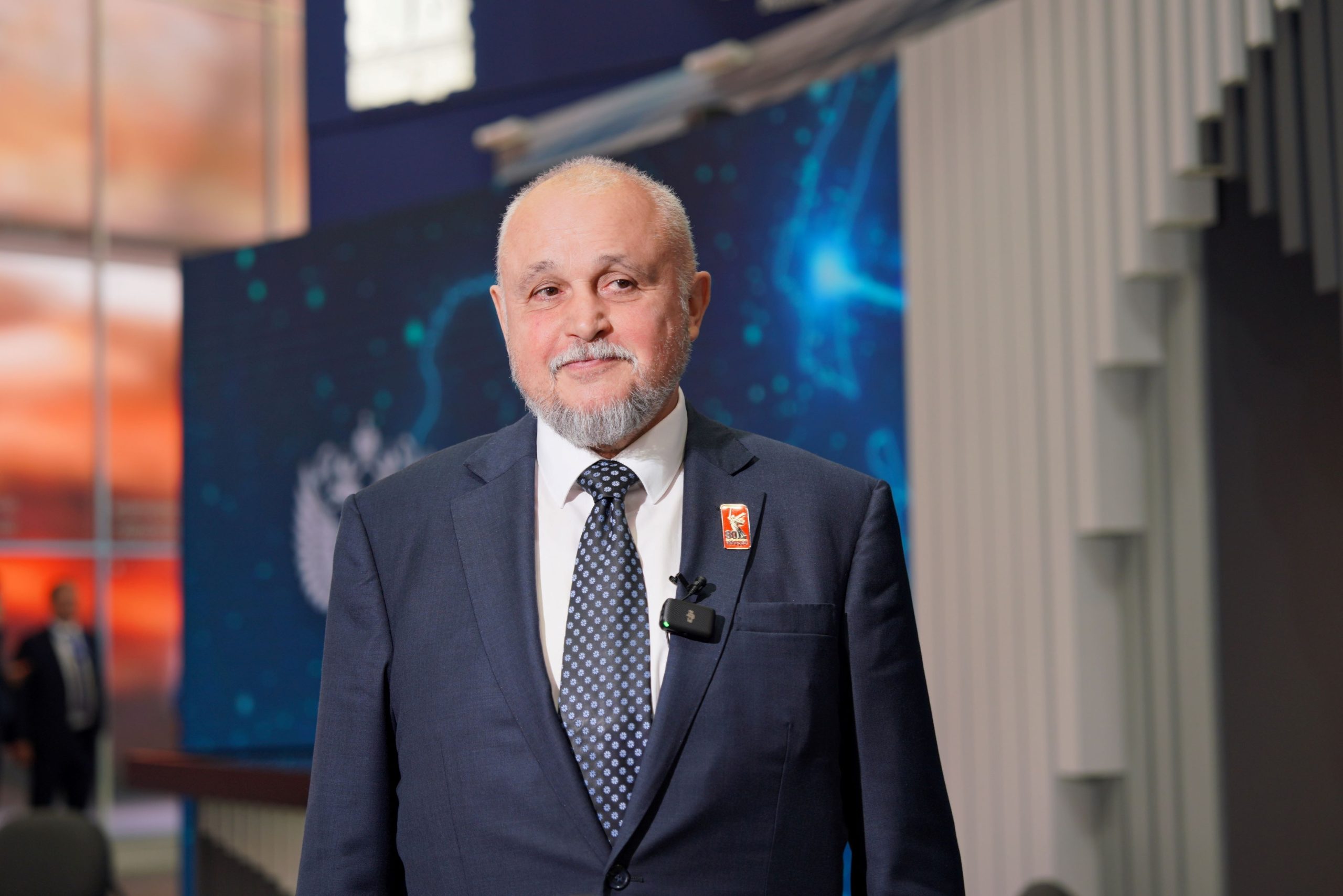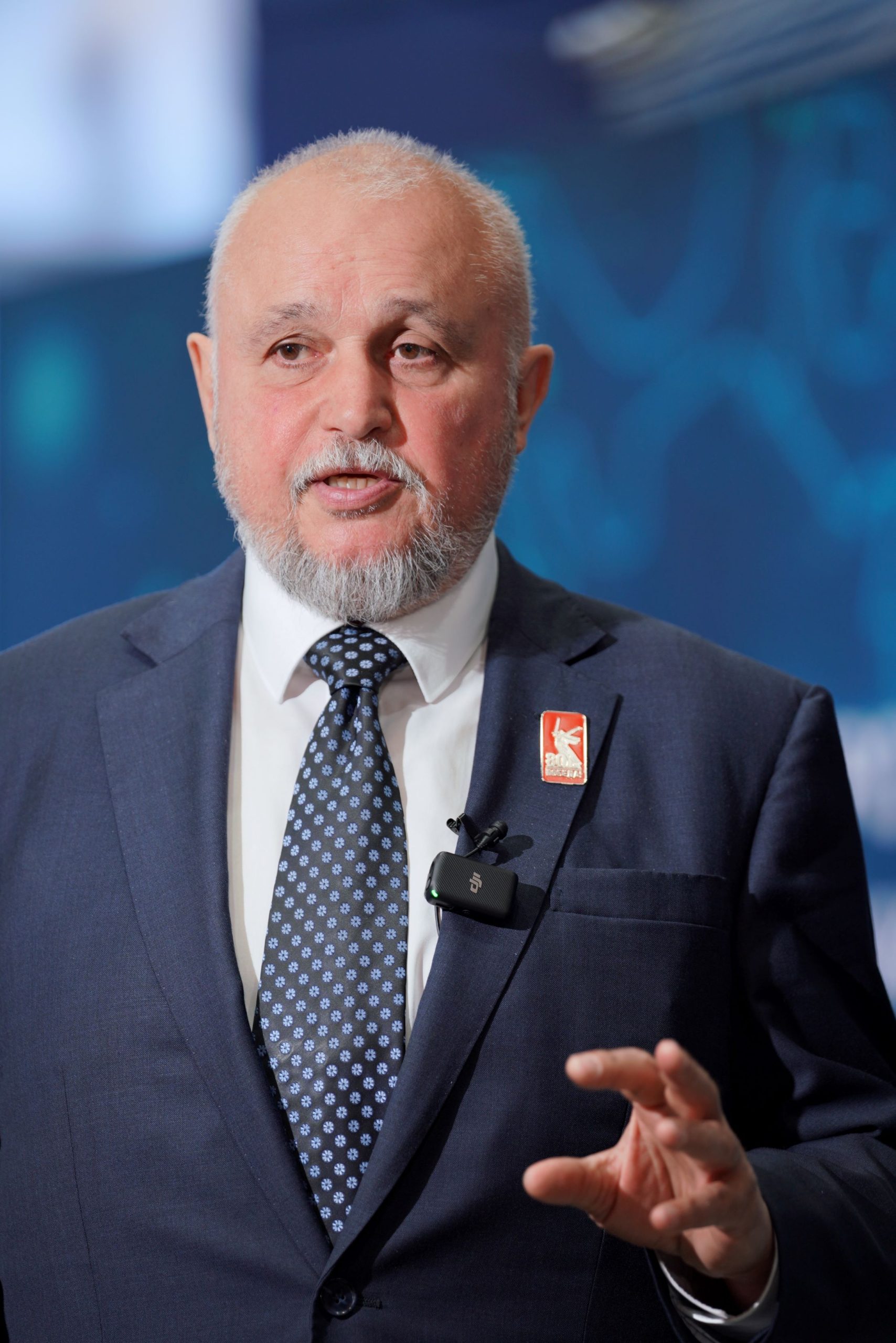Energy
The year 2025 is a special year for Oman and Russia as it marks 40 years of diplomatic relations between the two countries says HE Sergey Tsivilyov, Energy Minister of Russia

Oman and Russia are celebrating 40 years of diplomatic relations this year and His Majesty Sultan Haitham bin Tarik visited Russia in April 2025. The Royal visit strengthened ties between the two countries and particularly in the field of energy. Mayank Singh of OERLive spoke to HE Sergey Tsivilyov Energy Minister of Russia on the sidelines of the St. Petersburg International Economic Forum (SPIEF), held from June 18-21. The Forum was organised by the Roscongress Foundation.
Sharing his thoughts on His Majesty’s visit to Russia HE Tsivilyov said that 2025 was “A very important year for us as we are celebrating 40 years of diplomatic relations between the two countries and it is a great honour that the Sultan came to visit Russia.”
Regarding the outcome of the visit he added, “The heads of our countries namely His Majesty the Sultan of Oman and President Vladimir Putin of Russia had a very productive dialogue and they reached an agreement on a number of issues. We as government representatives are now responsible to fulfil these agreements.”
“We particularly discussed our cooperation in oil production and working together in Organization of the Petroleum Exporting Countries (OPEC) plus. We have a broad range of contacts with Oman’s Ministry of Energy and Minerals and have started working on mutually beneficial projects,” HE added.
HE Tsivilyov highlighted the importance of global energy security, saying that amid the growing demand for energy security and stability in Europe and Asia, global energy security is the foundation for sustainable supply chains.
He acknowledged that the world now has serious changes and challenges in the area of energy and that the rising demand for energy and new tech creates challenges for the whole chain of energy production.

Highlighting the energy transition’s role, the Russian minister said it would be responsible for developing all countries and improving the quality of life. He emphasised this as a responsibility to future generations, noting that proper energy sector development needs to positively impact national development.
“We are now establishing the core principles that will be the basis of energy of the future,” he noted, adding, “We believe future energy production must be rooted in energy justice.”
The minister noted that the expansion of energy should be driven by the development of renewable sources, not solely by CO2 emissions. He also added that energy planning should consider several factors, including each country’s “specific standard of living and technological development.”
“Each country needs to ensure its energy security,” he said. Energy accessibility “should be built for both the people and for production,” and must be “not only technically but financially accessible” so people can afford it. Energy, he stressed, should be efficient and “help develop the country and raise the standard of living.”
Additionally, he stressed that energy should consider environmental protection, saying, “That’s why the concept of energy justice is multifaceted. Regarding Russia’s position in the energy market amid shifting global alliances and sanctions, Russia remains open to cooperation in the energy sector with all partners, he added.
“Energy is the basis of the development of all economies. Energy is the basis of the improvement of life quality of all the entire population of the world. Now we have to develop our own technology. Before that, we had to use technologies built up by the West,” he noted.
He added that Russia’s access to foreign technology was restricted, but this has created new opportunities for self-reliance, underlining that his country now possesses over 80 percent of the technologies used globally. Russia, he added, targets producing 100 percent of all the technologies locally, ensuring these technologies meet or exceed Western standards.
“This is the technological sovereignty our President has set as a goal for us,” he noted. However, he affirmed that no single nation can achieve this alone; it requires collaboration with friendly countries. Russia is ready to share its technologies with all friendly countries to foster collective sovereignty based on energy justice, which includes accessibility of new technologies for every country, and access to financial instruments.
Commenting on the ongoing global energy transition, he said Russia believes BRICS countries now hold a special role and can together build a multipolar world, one that respects the unique circumstances and needs of each nation.
Russia is actively collaborating with BRICS energy ministers to advance this vision, added HE Tsivilyov. Last year, during the Russian Energy Week in Moscow, BRICS energy ministers met and signed a joint communiqué outlining shared principles for the energy transition.
This marked the first steps toward establishing a framework for fair energy access. On May 19 in Brazil, BRICS energy ministers reconvened to further refine these principles, particularly the concept of energy justice. Tsivilyov said the bloc also developed a concrete agenda for the development of the BRICS energy sectors.
“Now, at the St. Petersburg Economic Forum, we are continuing this work.” He spotlighted energy inequality, particularly in Africa. “We know the challenges that African countries face, where 600 million people do not have access to energy. More than 1 million people do not have an opportunity to cook food using pure energy.”
“We are prepared to cooperate so we can solve these issues together with the African countries by discussing the most efficient strategies so that we can provide improvements as soon as possible,” he added. In addition, the Minister talked about the importance of SPIEF as an important platform for energy companies to meet and develop collaboration.

-

 Banking & Finance2 months ago
Banking & Finance2 months agoOman Oil Marketing Company Concludes Its Annual Health, Safety, Environment, and Quality Week, Reaffirming People and Safety as a Top Priority
-

 News2 months ago
News2 months agoJamal Ahmed Al Harthy Honoured as ‘Pioneer in Youth Empowerment through Education and Sport’ at CSR Summit & Awards 2025
-

 Economy2 months ago
Economy2 months agoPrime Minister of India Narendra Modi to Visit the Sultanate of Oman on 17-18 December
-

 OER Magazines2 months ago
OER Magazines2 months agoOER, December 2025
-

 News1 month ago
News1 month agoAI Security Conference 2025 Hosted by Securado Highlights the Changing Cybersecurity Landscape
-

 Insurance1 month ago
Insurance1 month agoSupporting Community Wellness: Liva Insurance Sponsors Muscat Marathon 2026 with Free Health Checkups
-

 Interviews4 weeks ago
Interviews4 weeks agoEXCLUSIVE INTERVIEW: TLS Rebranding Marks Strategic Leap Toward Innovation, Sustainability & Growth
-

 Insurance3 weeks ago
Insurance3 weeks agoLiva Insurance Supports Community Wellness Through “Experience Oman – Muscat Marathon 2026”





























